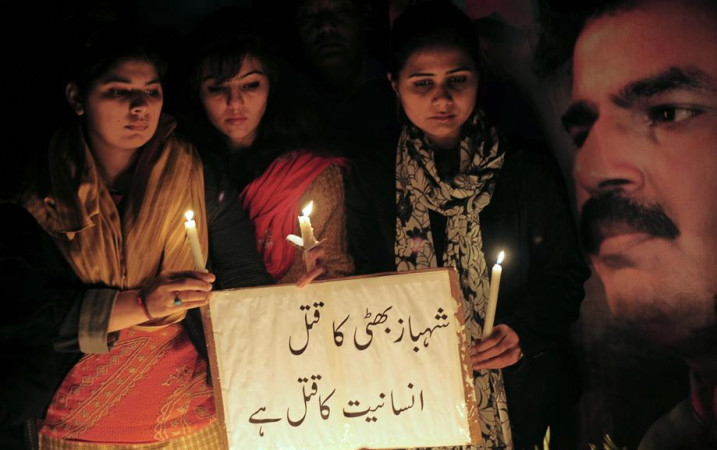In Asia, a wide spectrum of anti-Christian persecution

By John L. Allen Jr. and Inés San Martín
Crux Staff December 20, 2015
Although Christianity represents just around 7 percent of Asia’s population, that’s still an enormous pool of humanity — about 310 million people.
Christians form the majority faith in two Asian nations, the Philippines and East Timor. In Vietnam and South Korea, Christianity is the largest and best-organized religious option, even though the majority in both countries does not profess a religious affiliation.
Christianity is growing rapidly in many other parts of Asia, including Indonesia, South Korea, Malaysia, Cambodia, Vietnam, Laos, Bhutan, Bangladesh, Pakistan, and even Mongolia. Twenty years ago, there were essentially no Christians in Mongolia; today there are more than 500 Protestant churches and an established Catholic presence.
There are now more Pentecostals in Asia, according to Boston University scholar Paul Freston, than in all of North America and Europe. The largest single Christian congregation anywhere in the world is thought to be the Yoido Full Gospel Church, a Pentecostal church in Seoul. Every Sunday, something like 250,000 worshippers show up for nine services simultaneously translated into 16 languages.
In China, the Pew Research Center estimated the number of Christians in 2010 at 67 million, representing massive growth since the last census that included religious affiliation in 1949, when the Christian total was less than a million.
Purdue University sociology professor Fenggang Yang believes China is on track to overtake the United States as home to the largest Christian population in the world.
Perhaps in part because of that growth, Asia is also home to arguably the widest spectrum of anti-Christian persecution anywhere in the world.
This is true in old-style police states, like North Korea and Myanmar, that see Christians as a threat to their hegemony. And also in one-party states struggling to foster economic liberalization without political reform, such as China and Vietnam, where the concern is often the perception that Christians are more susceptible to Western-style expectations of civil and political rights.
North Korea has led most global watch lists for more than a decade as the single most dangerous spot on earth to be a Christian. Roughly a quarter of the country’s 200,000 to 400,000 Christians are believed by watchdog groups such as Open Doors to be living in forced labor camps for their refusal to join the national cult around founder Kim Il Sung.
The anti-Christian animus in North Korea is so strong that even people with Christian grandparents are frozen out of the most important jobs — a grand irony, given that Kim Il Sung’s mother, and thus the great-grandmother of the current “Supreme Leader,” was a Presbyterian deaconess.
The Asian continent also has given the world a public face of anti-Christian persecution: Aasiya Noreen Bibi of Pakistan, better known to the world as “Asia Bibi,” almost certainly the most famous illiterate Punjabi farm worker and mother of five on the planet.
Bibi came onto the radar screen in June 2009 when she was arrested and charged with the offense of “blasphemy” under Pakistani law. As she would later describe it, the dispute began when Bibi, a Catholic, drank from a well in her small village, thereby defiling it in the eyes of local Muslim women. She and some of the women began trading barbs about Jesus and Mohammed. Though Bibi insisted she meant no disrespect, the others used her words as a pretext to whip up outrage and have her arrested.
A trial ended with her being sentenced to death by hanging in November 2010. She was also fined 300,000 Pakistani rupees, the equivalent of about $3,000, a staggering sum. Bibi and her legal team are awaiting a ruling on their appeal to the Pakistani Supreme Court.
Her case went viral and has become a cause célèbre in Christian activist circles around the world. Perhaps the campaign will succeed and shame Pakistani authorities into cutting Bibi loose. That would be an important symbolic breakthrough, although other Asian victims of religious hatred likely would continue to suffer in similar ways, only without her notoriety.
 Witness of martyrs - Bashir Akash
Witness of martyrs - Bashir Akash
 The Angel of the Leppers
The Angel of the Leppers

































